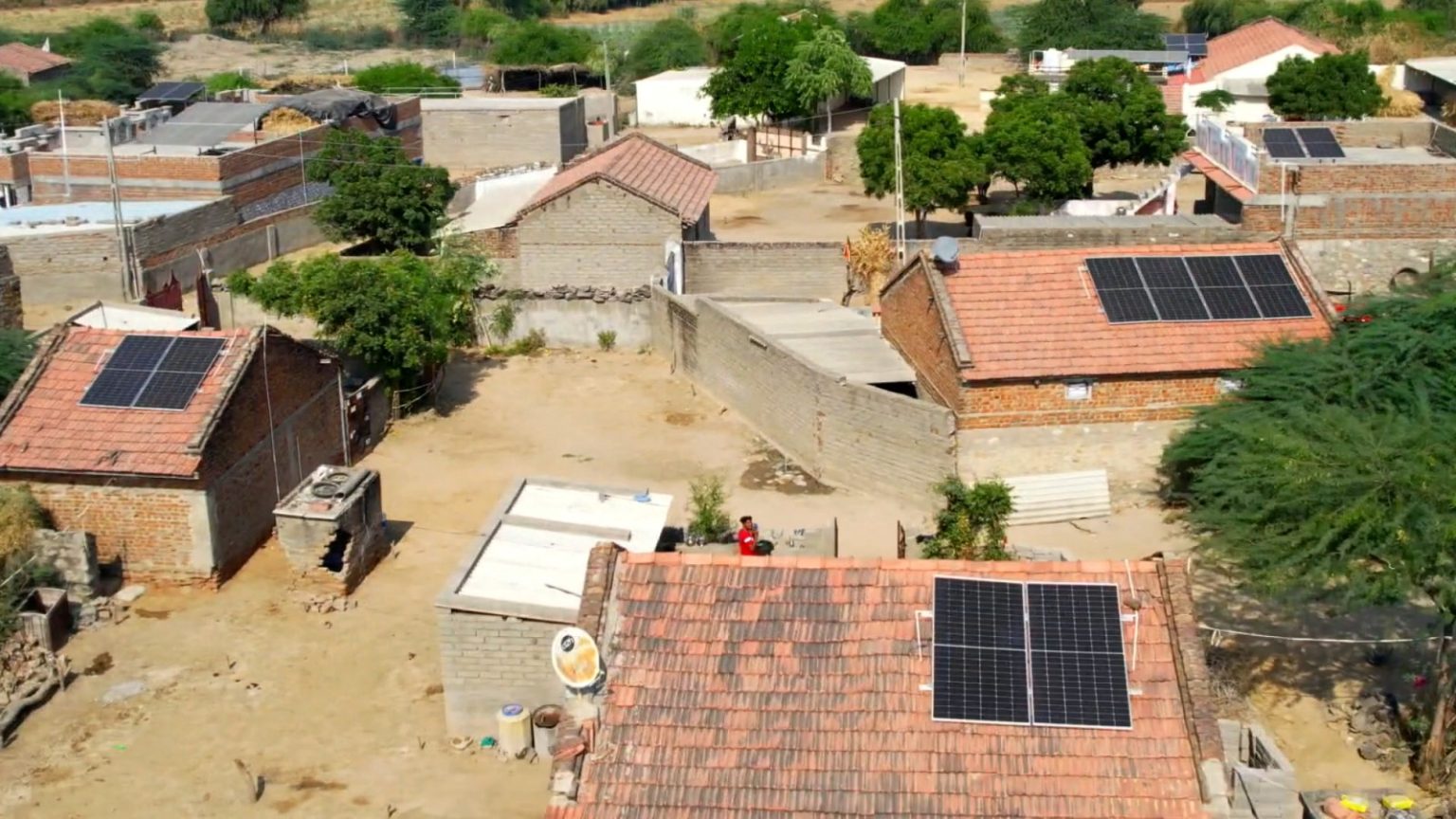Masali Village in Gujarat

- 20 Dec 2024
In News:
In Gujarat, Masali village in Banaskantha district has become country’s first solar border village.
Key Highlights:
Location:
Masali village is located in Banaskantha district, Gujarat, approximately 40 kilometers from the Pakistan border. The village, with a population of around 800 people, has recently achieved a significant milestone by becoming India’s first fully solar-powered border village.
Solarization Initiative:
Under the PM Suryaghar Yojana, the village has installed solar rooftops on 119 houses. These solar installations collectively generate over 225 kilowatts of electricity, which is more than sufficient to meet the village’s energy needs. This initiative marks a step forward in solarizing border areas of India, promoting sustainability and reducing dependency on conventional energy sources.
Significance of the Initiative:
- India's First Solar-Powered Border Village: Masali village is the first of its kind in India, making it a model for other border regions to adopt renewable energy solutions.
- Promotes Renewable Energy: The transition to solar power encourages sustainability, reduces dependence on traditional fossil fuels, and supports India's renewable energy goals.
- Part of the Border Development Project: Masali is part of a broader government plan that aims to solarize 11 villages in Vav taluka and 6 villages in Suigam taluka, strengthening energy access in these strategically vital areas.
- Energy Security: By harnessing solar energy, the village enhances its energy reliability and self-sufficiency, especially in remote areas with limited access to the national grid.
PM Suryaghar Yojana: Launched in 2024, the PM Suryaghar Yojana aims to provide free electricity to eligible Indian households by subsidizing the installation of rooftop solar panels. Key features of the scheme include:
- A subsidy covering up to 40% of the installation cost of solar panels.
- Eligible families receive 300 free electricity units per month, saving up to Rs. 18,000 annually.
- The scheme is expected to save the government approximately Rs. 75,000 crore annually on electricity costs.
- It encourages the use of renewable energy, lowers carbon emissions, and reduces the electricity expenses for the government.
Eligibility for the Scheme:
- Indian citizens who own a house with a suitable roof for installing solar panels.
- Households must have a valid electricity connection and should not have received any prior subsidy for solar panels.
Broader Implications:
The successful solarization of Masali village is not just an energy achievement but also a significant step toward promoting renewable energy usage, enhancing energy security, and fostering sustainable development in India’s border regions. It is expected that other regions in Gujarat and across the country will follow this example, improving both local living conditions and national energy resilience.
